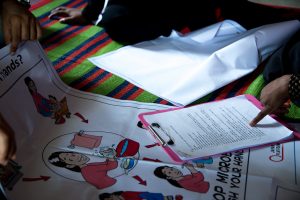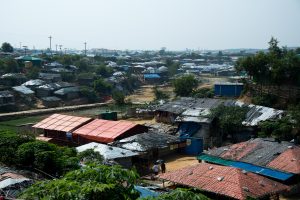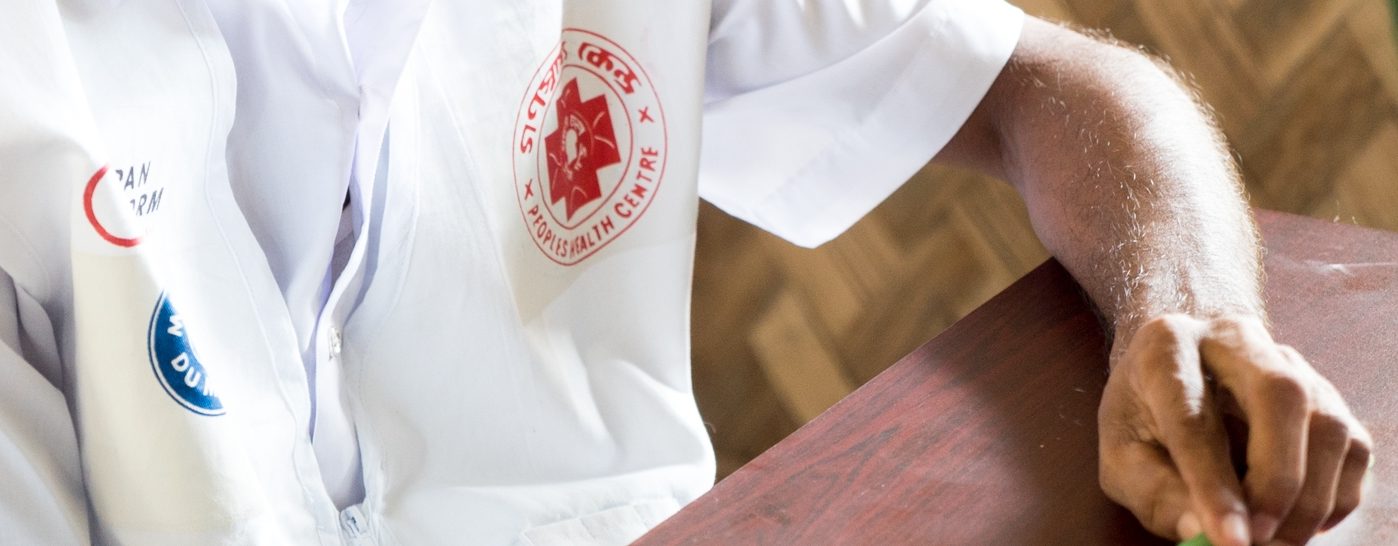Nobi, 42 – Testimony of Rohingya
Published 22nd February 2019
As I walked with him through the camp, we could hear the residents call: “Nobi vai!” (Brother Nobi!).
Nobi is undoubtedly very popular in the area. As a leader among Doctors of the World’s volunteers, he is also a major pillar in community work. Nevertheless, his gestures and words are humble, smart, and calm. He discusses quietly about the need for a clinic for the inhabitants, but then he wells up as he starts to talk about his 2-year-old son. Being a father, a community leader, and a community worker is a heavy burden. His warm human nature feels like a healing energy for the inhabitants of the camp who have experienced unimaginable hardship and fear.
Since January 2018, Nobi has been participating and helping the Rohingya community by conducting health education activities. Ranging from disaster prevention and first aid to hygiene education, vaccination, family planning, maternal and newborn health, diarrhea, malaria, and dengue fever, many different topics and issues have been covered in the activities.
Akiko, Doctors of the World’s nurse

Nobi’s Story
I think that health education is necessary for the people living here. How can we live healthily here without knowledge? Clean water and hygiene education are important.
There is a long distance between the area we live and the clinic, so most people don’t go to the hospital, even when they are sick. It is also hard to get medicines. Many households have small children and for them it is difficult to visit a clinic which is far away. Sometimes children are left alone in the house and one can hear their non-stop crying. Sometimes, as I drive on these trails, I see accidents involving cars and rickshaws. It makes me think that we definitely need a clinic nearby.
I arrived here soon after August 25th, 2017. It was forbidden to cross the border from Myanmar to Bangladesh, so I hiked across the mountains with my family. During the rainy season the river too is dangerous and we thought that there will not be any army guards in the mountains, so we chose that route to escape. It took us six days to come here.
It was really difficult to escape with my father. He has a paralysis and was 103 years old at the time. I had to use a blanket as a stretcher. I have a two-year-old son, but he had to walk alone. I felt very guilty because I made my son witness such harshness, and no one offered us any help.
We crossed the border with this heavy feeling. In the middle of nowhere during our escape, we saw a woman giving birth at the roadside.
In Myanmar, I lived in Maungdaw. The reasons why we left was not shortage of food. The only reason why we decided to leave was to escape Myanmar government forces’ cruel violence. Innocent children and pregnant women were killed. Women were raped.
I am currently living with my family in the camp. Both my father and my 85-year-old mother are fine. But thinking about those events is very hard. I am grateful that you gave me the opportunity to speak. Thank you

